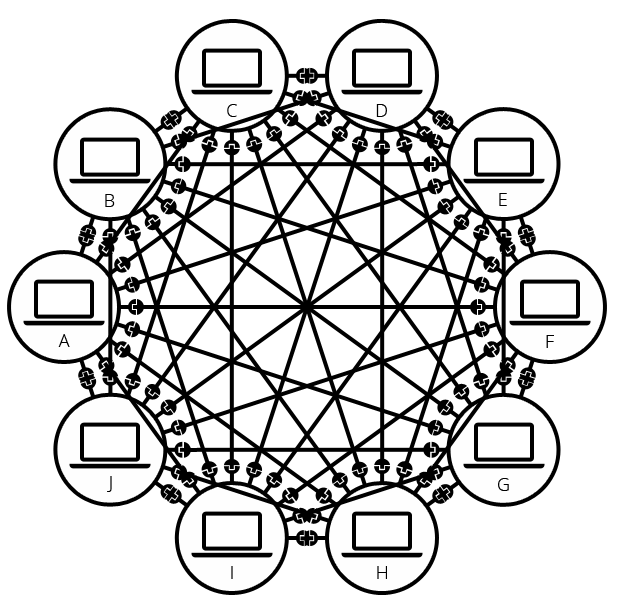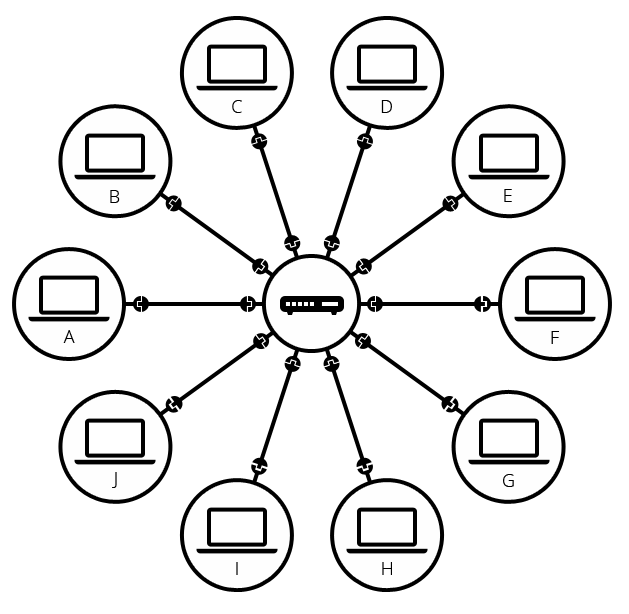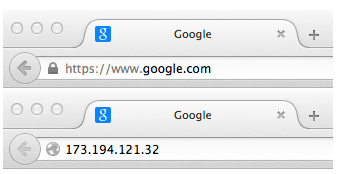Internet.md - brainchildservices/curriculum GitHub Wiki
SLIDE-1
How does the Internet work?
This article discusses what the Internet is and how it works.
Objective: You will learn the basics of the technical infrastructure of the Web and the difference between Internet and the Web.
The Internet is the backbone of the Web, the technical infrastructure that makes the Web possible. At its most basic, the Internet is a large network of computers which communicate all together.
The history of the Internet is somewhat obscure. It began in the 1960s as a US-army-funded research project, then evolved into a public infrastructure in the 1980s with the support of many public universities and private companies. The various technologies that support the Internet have evolved over time, but the way it works hasn't changed that much: Internet is a way to connect computers all together and ensure that, whatever happens, they find a way to stay connected.
SLIDE-2
A simple network
When two computers need to communicate, you have to link them, either physically (usually with an Ethernet cable) or wirelessly (for example with WiFi or Bluetooth systems). All modern computers can sustain any of those connections.
Note: For the rest of this article, we will only talk about physical cables, but wireless networks work the same.

Such a network is not limited to two computers. You can connect as many computers as you wish. But it gets complicated quickly. If you're trying to connect, say, ten computers, you need 45 cables, with nine plugs per computer!

SLIDE-3
To solve this problem, each computer on a network is connected to a special tiny computer called a router. This router has only one job: like a signaler at a railway station, it makes sure that a message sent from a given computer arrives at the right destination computer. To send a message to computer B, computer A must send the message to the router, which in turn forwards the message to computer B and makes sure the message is not delivered to computer C.
Once we add a router to the system, our network of 10 computers only requires 10 cables: a single plug for each computer and a router with 10 plugs.

SLIDE-4
Finding computers
f you want to send a message to a computer, you have to specify which one. Thus any computer linked to a network has a unique address that identifies it, called an "IP address" (where IP stands for Internet Protocol). It's an address made of a series of four numbers separated by dots, for example: 192.168.2.10.
That's perfectly fine for computers, but we human beings have a hard time remembering that sort of address. To make things easier, we can alias an IP address with a human readable name called a domain name. For example (at the time of writing; IP addresses can change) google.com is the domain name used on top of the IP address 173.194.121.32. So using the domain name is the easiest way for us to reach a computer over the Internet.

SLIDE-5
What is the difference between webpage, website, web server, and search engine?
As with any area of knowledge, the web comes with a lot of jargon. Don't worry, we won't overwhelm you with all of it (we have a glossary if you're curious). However, there are a few basic terms you need to understand at the outset, since you'll hear these expressions all the time as you read on. It's easy to confuse these terms sometimes since they refer to related but different functionalities. In fact, you'll sometimes see these terms misused in news reports and elsewhere, so getting them mixed up is understandable!
We'll cover these terms and technologies in more detail as we explore further, but these quick definitions will be a great start for you:
web page
A document which can be displayed in a web browser such as Firefox, Google Chrome, Opera, Microsoft Internet Explorer or Edge, or Apple's Safari. These are also often called just "pages."
SLIDE-6
website
A collection of web pages which are grouped together and usually connected together in various ways. Often called a "web site" or a "site."
web server
A computer that hosts a website on the Internet.
search engine
A web service that helps you find other web pages, such as Google, Bing, Yahoo, or DuckDuckGo. Search engines are normally accessed through a web browser (e.g. you can perform search engine searches directly in the address bar of Firefox, Chrome, etc.) or through a web page (e.g. bing.com or duckduckgo.com).